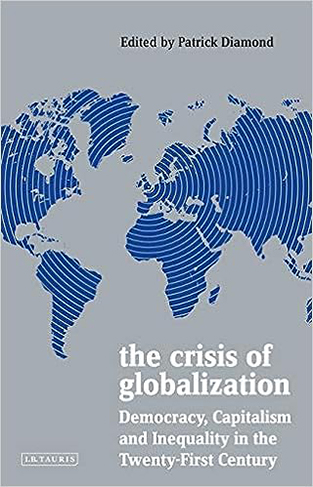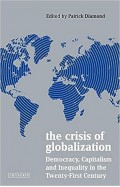- Home
- Motivation
- History
- Political
- The Crisis of Globalization - Democracy, Capitalism and Inequality in the Twenty-First Century
The Crisis of Globalization - Democracy, Capitalism and Inequality in the Twenty-First Century
By: Patrick Diamond
-
Rs 2,596.75
- Rs 3,995.00
- 35%
You save Rs 1,398.25.
Due to constant currency fluctuation, prices are subject to change with or without notice.
The Crisis of Globalization - Democracy, Capitalism and Inequality in the Twenty-First Century
By: Patrick Diamond
Rs 2,596.75 Rs 3,995.00 Ex Tax :Rs 2,596.75
Zubin Mehta: A Musical Journey (An Authorized Biography)
By: VOID - Bakhtiar K. Dadabhoy
Rs 472.50 Rs 1,050.00 Ex Tax :Rs 472.50
The Origins of Political Order From Prehuman Times to the French RevolutioN
By: Francis Fukuyama
Rs 3,116.00 Rs 3,895.00 Ex Tax :Rs 3,116.00
Manning Up: How the Rise of Women Has Turned Men into Boys
By: Kay Hymowitz
Rs 646.75 Rs 995.00 Ex Tax :Rs 646.75
The Obama Syndrome: Surrender At Home War Abroad
By: Tariq Ali
Rs 1,036.00 Rs 1,295.00 Ex Tax :Rs 1,036.00
The Quest For Meaning: Developing A Philosophy Of Pluralism
By: Tariq Ramadan
Rs 1,116.00 Rs 1,395.00 Ex Tax :Rs 1,116.00
The Pakistan US Conundrum Jihadists The Military And The People The Struggle For Control
By: Yunas Samad
Rs 1,116.00 Rs 1,395.00 Ex Tax :Rs 1,116.00
An Enemy We Created: The Myth Of The Taliban Al Qaeda Merger In Afghanistan 19702010
By: Alex Strick van Linschoten
Rs 3,412.50 Rs 5,250.00 Ex Tax :Rs 3,412.50
WikiLeaks: Inside Julian Assanges War on Secrecy
By: David Leigh & Luke Harding
Rs 552.50 Rs 850.00 Ex Tax :Rs 552.50
No similar books from this author available at the moment.
No recently viewed books available at the moment.
Zubin Mehta: A Musical Journey (An Authorized Biography)
By: VOID - Bakhtiar K. Dadabhoy
Rs 472.50 Rs 1,050.00 Ex Tax :Rs 472.50
The Crisis of Globalization - Democracy, Capitalism and Inequality in the Twenty-First Century
By: Patrick Diamond
Rs 2,596.75 Rs 3,995.00 Ex Tax :Rs 2,596.75













-120x187.jpg?q6)





-120x187.jpg?q6)



-120x187.jpg?q6)



